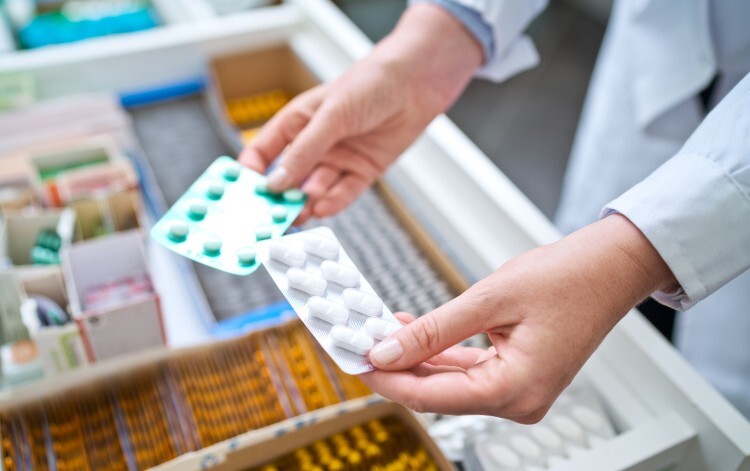Device to detect counterfeit meds developed by Brighton researchers

A hand-held electrochemical sensor device has been created by researchers at the University of Brighton to verify the authenticity of medicines ‘quickly, accurately and affordably’, amid growing concerns over counterfeit medication.
The FakeMedSensor prototype works similarly to handheld fingerpick blood glucose monitors and uses electrochemical sensing to detect the presence and amount of active pharmaceutical ingredients. These ingredients are then verified using a digital library.
The product is still in its pilot phase and is not yet available on the market, but researchers said it has delivered ‘strong results’ in laboratory trials and that it is ‘designed for real-world use across a variety of settings’.
Related Article: Pharmacy owners urged to contact LPCs with NHS weight loss service ideas
They also said they hope the product – which can be used on human and animal treatments as well as food supplies – will be available to healthcare professionals within two years.
The technology was developed by Professor Bhavik Patel, professor of clinical and bioanalytical chemistry at the University of Brighton, and Dr Rico Shergill, a PhD researcher in electrochemistry.
Professor Patel told The Pharmacist: ‘Our next phase will be to conduct a wider pilot study within field settings. This will be followed by considering manufacturing scalability and quality assurance testing to ensure the product has high accuracy when widely distributed.’
He envisioned it would be accessible to healthcare professionals within two years.
Professor Patel added: ‘Falsified and substandard medication presents a serious threat to global health – one that disproportionately affects vulnerable populations. Our work is about delivering a practical solution that provides wide scale surveillance of medicines throughout all phases of the supply chain.’
Related Article: First-line SGLT-2 prescribing proposed for type 2 diabetes in new draft guideline
The need for medicine authentication tools has been accelerated by demand for weight loss drugs such as Mounjaro and Ozempic. The Medicines and Healthcare products Regulatory Agency (MHRA) has already reported the seizure of hundreds of counterfeit pens in the UK.
And now, with imminent Mounjaro price increases, the Royal Pharmaceutical Society (RPS) has reiterated concern about counterfeit and unregulated weight loss products which may contain ‘incorrect dosages, harmful substances, or no active ingredients at all’.
This is a challenge that Brighton researchers hope to ‘tackle head-on’ with their new technology – the culmination of 10 years of research.
Dr Shergill said: ‘One of the hardest parts has been balancing the science with the commercial side. There were moments of doubt, trying to validate something technically complex while also figuring out who it would serve and how.
Related Article: ADHD meds lower risk of suicide, substance abuse and criminality, research finds
‘There were times when I didn’t have all the answers. But the encouragement from the university, supervisors, and family, to keep pushing forward, to step back and refine the focus, has kept the project moving.’
The team has invited healthcare professionals, including pharmacists, to shape the development of this tool by completing a short survey.

Have your say
Please add your comment in the box below. You can include links, but HTML is not permitted. Please note that comments are not moderated before publication and the views expressed are those of the user and do not reflect the views of The Pharmacist. Remember that submission of comments is governed by our Terms and Conditions. You can also read our full guidelines on article comments here – but please be aware that you are legally liable for any libellous or offensive comments that you make. If you have a complaint about a comment or are concerned that a comment breaches our terms and conditions, please use the ‘Report this comment’ function to alert our web team.